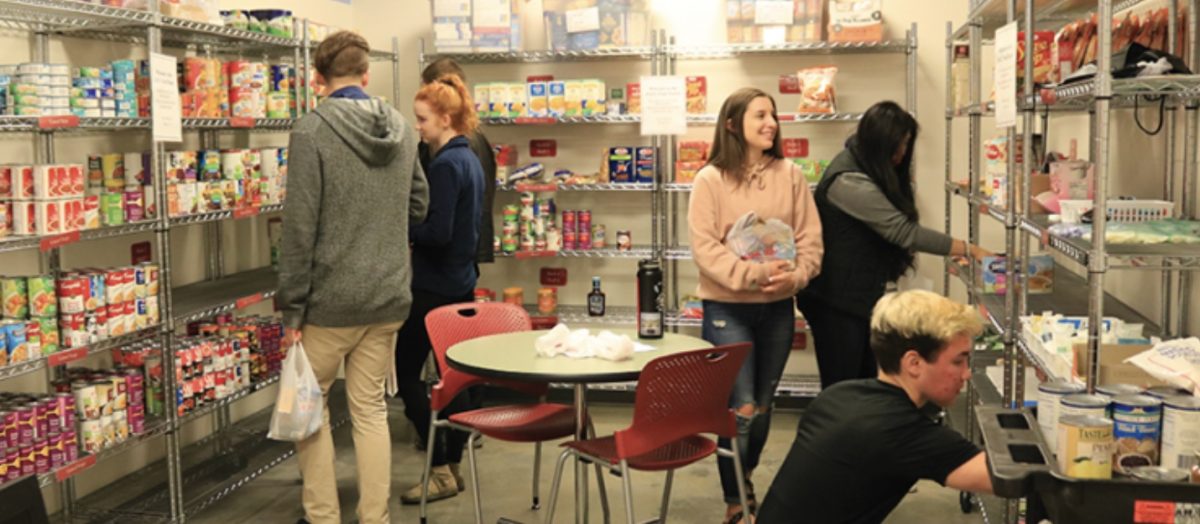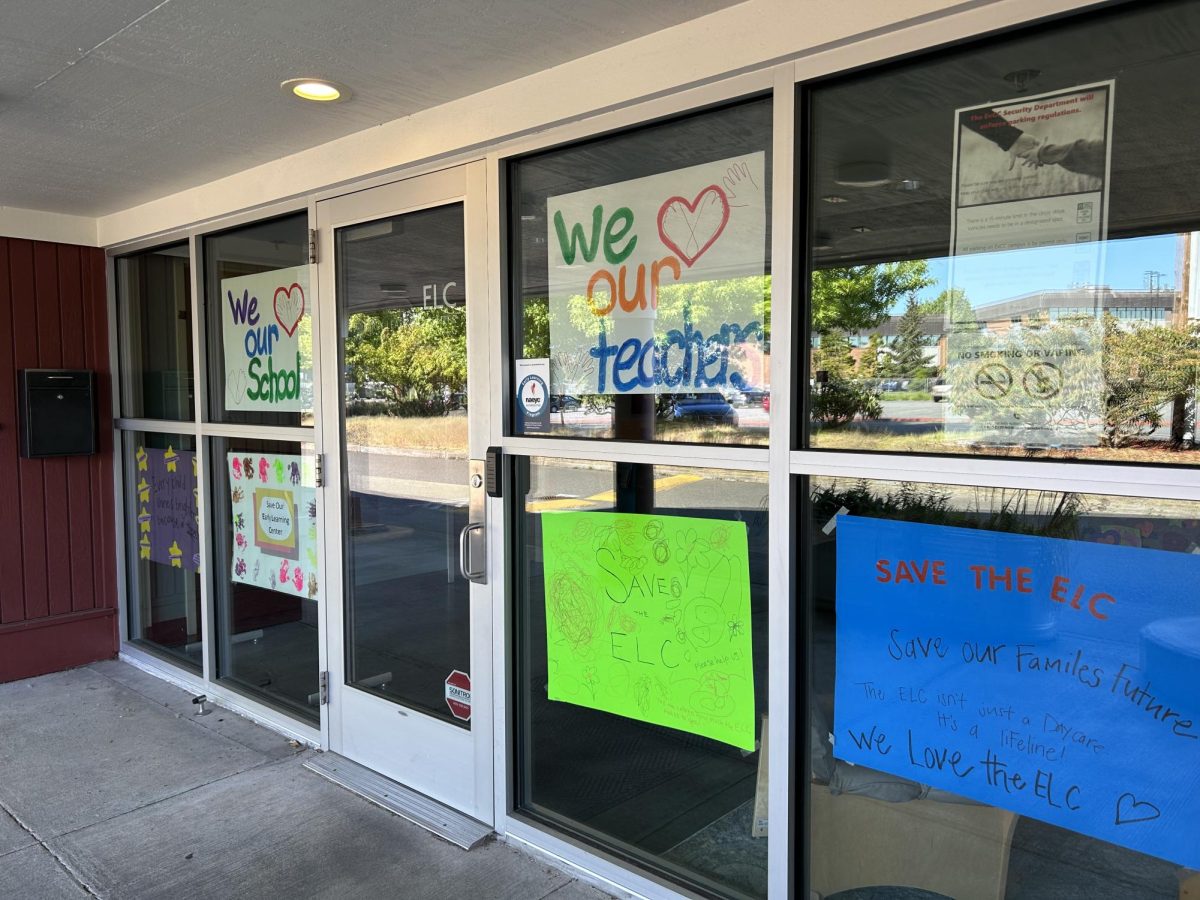For many students here at EvCC, that’s a decision they face more often than they’d like to admit. While inflation is driving up the cost of living and wages are staying low, students are learning how to stretch every dollar they have. EvCC students Manuel Rodriguez and Caley Gerlach explain how they’re able to keep up, what they’re doing to support themselves and what is keeping them from being able to get ahead.
From using food pantries to juggling part-time jobs and using budgeting apps to figure out which money is going where, college life today isn’t just about passing classes, it’s about financial survival.
When people think of college expenses, tuition is normally what comes to mind first, but for many students today, that’s just one piece to something bigger. At EvCC, students are either commuting, renting or living at home with their parents while trying to manage their long list of monthly expenses.
“My biggest monthly expenses are gas, car insurance or repairs, the portion I pay for my cell phone plan, and any food or necessities I purchase for myself,” Gerlach said.

Rent is often the biggest expense, some students paying $600-1,200 a month – sometimes even more. On top of that comes phone bills, utilities, car payments, groceries, gas and school-related costs like parking permits and textbooks.
Grocery costs alone can run between $200-400 per month, and the students that have longer commute times to school are spending a generous amount on gas, especially with the rising prices.
Rodriguez shared that he spends close to $100 every week on gas just to get to work and class. “It adds up so quickly and sometimes I feel like I’m just working to afford to drive to work and school.”
One missed paycheck, medical bill or unexpected car repair can throw off an entire monthly budget. It’s a financial balancing act that can leave students exhausted, stressed and worried about falling behind.
Most students at EvCC work part-time jobs and some juggle more than one. A lot of students head straight to work from class to an evening shift, and they don’t get home until 9 p.m. or later.
Grocery stores, retail or restaurant jobs are commonly where students work, and wages typically range from $16 to $20 an hour. But, those wages often aren’t enough to cover their living expenses.
For those without financial support from family, working a job becomes non-negotiable. The challenge you have to learn is balance. Between school, homework, commuting and job shifts, many are left with little time and energy.
Some students have to limit the coursework and start part-time schooling to be able to handle it all, but it slows down their path to graduation. Others push through both full-time work and school, sacrificing their social life and sleep just to stay ahead and keep their bills paid. The stress of balancing academics and work adds on another pressure of life, and makes many feel like they’re behind.
“I wouldn’t say I fall behind on my homework because of my job, but I definitely tend to prioritize other things just because I don’t want to do homework. When I let it pile up, it gets overwhelming,” Gerlach said.
EvCC students are still finding creative ways to stretch their money despite the challenges. Some rely on strict budgeting and using apps like Rocket Money or EveryDollar that do it for them. Meal prepping is also another popular method that students do. Cooking large meals and packing it for the week helps keep students from spending their money on fast food restaurants. Others use student discounts at stores and go to thrift stores for clothing.
“Since I live with my family I rarely spend money on food, if I’m being honest. I do a lot of meal prepping and keep things in my mini fridge so it’s easy to grab and go,” Gerlach mentioned.
Campus resources also play a huge role in helping students to stay afloat. The EvCC food pantry, located in Whitehorse Hall, offers shelf-stable food, baby supplies, hygiene products and pet food for students. It’s open multiple days a week, and students can also get help to apply for SNAP benefits or access to the local food banks.
Students at other schools have also found ways to bring in extra income by having a side business, such as reselling clothing online or managing small social media accounts. Others have roommates or continue to live at home to save on rent.
College has always come with some sort of financial struggle. These past few years have made it even more difficult for students. Inflation is continuing to rise, making everything go up in price such as rent, groceries and gas. Even the smaller purchases like school supplies, snacks and coffee feel like a luxury when you’re counting every dollar.
For the students who work minimum wage or low-paying jobs, inflation has increased already tiny budgets to the breaking point.

Rodriguez mentioned how he has had to cut out restaurant eating and cancel all his subscriptions just to keep up with his rent. “Inflation has been insane, I shouldn’t have to cut out these tiny purchases just to be able to have somewhere to live,” he mentioned. “It’s not like I’m out here spending money on luxuries, I am just trying to make it day by day.”
It’s not just about how to budget “better,” it’s about surviving the financial climb that feels like a never-ending uphill battle. The rising costs have not only been stressful but it has also forced some students to make tough decisions about whether to continue school full time or take time off to work more.
“I’ve thought about dropping out before just to work full time, but realistically, college is important to reach the next goals in my life. I just try to trust that I’m on the right path,” Gerlach said.
College and university is supposed to be a time of growth, learning and opportunity, but for a lot of students today, it also comes with sacrifice and financial strain. Despite the limited wages, constant pressure and increased prices, students have continued to stretch their time thin with classes, jobs and life.
“It’s so hard, but my parents are continuing to teach me how to be smarter with my money and be independent. I do struggle now a little but I have learned a lot and that will stick with me even after college,” Rodriguez said.












